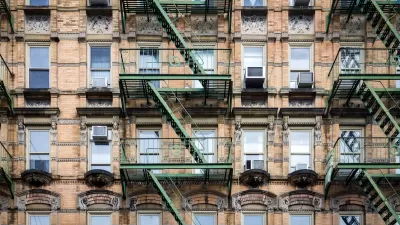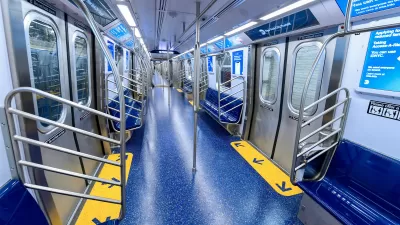In need of at least $230 million for system-wide repairs, NYC libraries, which receive less than $15 million a year from the city, look to strike land deals with private developers, report Joseph Berger and Al Baker.
A relatively new practice of releasing public property assets to private developers with the caveat of preserving public services is picking up speed in NYC.
Cash-strapped public agencies, including the library, school and municipal system, are exchanging land and old buildings for new mixed-use developments that also integrate these former functions, usually on a public ground floor.
Several libraries in Brooklyn and Manhattan have already struck bargains with developers, including with major DUMBO and now Williamsburg player Two Trees, with the first Andrew Carnegie-financed library in Brooklyn slated for demolition.
Some residents object to the plans, which would upgrade ailing public service systems at no public cost, on the grounds that neighborhood landmarks would be lost to high-rise redevelopment and extended closures would make access to public services more complicated during the reconstruction process.
Planning experts, including Mitchell Moss at NYU and David Giles at the Center for an Urban Future, support the financing strategy because it would restore and upgrade public amenities across the board without raising taxes.
FULL STORY: Saving Schools and libraries by giving up the land they sit on

Alabama: Trump Terminates Settlements for Black Communities Harmed By Raw Sewage
Trump deemed the landmark civil rights agreement “illegal DEI and environmental justice policy.”

Study: Maui’s Plan to Convert Vacation Rentals to Long-Term Housing Could Cause Nearly $1 Billion Economic Loss
The plan would reduce visitor accommodation by 25% resulting in 1,900 jobs lost.

Planetizen Federal Action Tracker
A weekly monitor of how Trump’s orders and actions are impacting planners and planning in America.

Wind Energy on the Rise Despite Federal Policy Reversal
The Trump administration is revoking federal support for renewable energy, but demand for new projects continues unabated.

Passengers Flock to Caltrain After Electrification
The new electric trains are running faster and more reliably, leading to strong ridership growth on the Bay Area rail system.

Texas Churches Rally Behind ‘Yes in God’s Back Yard’ Legislation
Religious leaders want the state to reduce zoning regulations to streamline leasing church-owned land to housing developers.
Urban Design for Planners 1: Software Tools
This six-course series explores essential urban design concepts using open source software and equips planners with the tools they need to participate fully in the urban design process.
Planning for Universal Design
Learn the tools for implementing Universal Design in planning regulations.
Caltrans
Smith Gee Studio
Institute for Housing and Urban Development Studies (IHS)
City of Grandview
Harvard GSD Executive Education
Toledo-Lucas County Plan Commissions
Salt Lake City
NYU Wagner Graduate School of Public Service





























